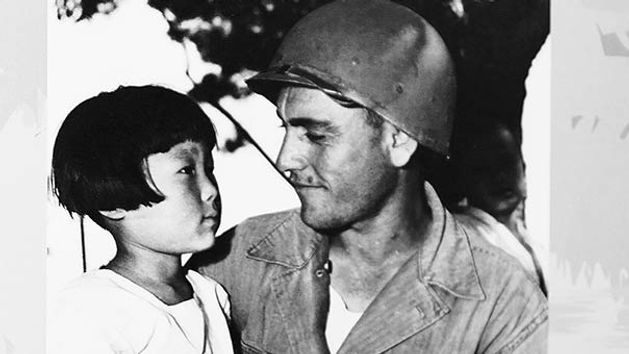HISTOKAL
KOREAN WARS
KOREAN WARS REFLECTIONS IN TÜRKİYE
Turkey sent troops to Korea within the framework of the decision taken at the session of the Turkish Grand National Assembly on June 30, 1950. The idea of sending troops to Korea, in accordance with the policy of the current government, was seen as an opportunity to become a member of NATO against the increasing threat of Soviet Russia.
United Nations Forces Commander General Walton Walker presenting the 'Silver Star' medal to Turkish Brigade Commander Brigadier General Tahsin Yazıcı
The 1st Turkish brigade, consisting of 5090 people, including 259 officers, 18 military officers, 4 civilian officers, 395 petty officers, 4414 non-commissioned officers and privates, under the command of Brigadier General Tahsin Yazıcı, departed from the port of Iskenderun on 17 September 1950, and the leading team reached the port of Busan on 12 October 1950. and on 17 October his main force also landed at Busan. It departed from Busan the same day and arrived in Taegu on October 20. Here, he was equipped with American equipment and started training. After fighting the communist guerrillas behind the front for a while, the Turkish Brigade joined the United Nations armies that were rapidly advancing towards the north. Departing from Taegu on 10 November, she arrived at Kunuri on 21 November and was deployed to the right flank of the American 9th Corps.
On the morning of November 24, 1950, the brigade, which received the order to advance north towards the Chinese border, moved from Kunuri and set out towards Tokchon along Kaechon, Sinnimni, Wawon. However, Chinese People's Volunteer troops began to infiltrate behind the front. Realizing the situation, American and South Korean troops began to retreat. However, the retreat order reached the Turkish brigade late. The 1st Battalion was surrounded and the 1st Battalion had to engage in bayonet fighting. The 3rd Battalion, 9th Company, which resisted until the end to ensure the Ricat operation, was destroyed. The remaining Turkish troops retreated along the Chongchon river.
A total of 14,936 Turkish soldiers served in Korea from the beginning of the war until the ceasefire in July 1953. 721 of them lost their lives, 175 were missing, 234 were captured and 2147 were injured. Thus, Turkey reached a casualty rate of 22 percent and ranked second after the USA in this regard.

KOREAN WARS REFLECTIONS IN EUROPE
On 25 June 1950, Communist troops from North Korea crossed the 38th parallel, which since 1945 had been the military demarcation line between the North of the country (under Soviet influence) and the South (under US influence). The confrontations along the border and the invasion of the South of the peninsula would mark the beginning of the Korean War. The United States, determined to support the authorities in the South, were able to take advantage of a moment when the Soviet delegate was temporarily absent from a United Nations Security Council meeting to commit the United Nations (UN) to defending South Korea. They called on the UN to apply the principle of collective security and to vote for sanctions against North Korea. In June 1950, US air and naval forces landed on the peninsula. Sixteen countries, including Great Britain, the Netherlands, Belgium and Luxembourg, were involved in the creation of an international force under US command. North Korea, on the other hand, enjoyed the diplomatic support of the Soviet Union and military aid from Communist China.
Although his forces had been able to drive the North Korean troops back to the Chinese border, the US General McArthur was, from the beginning of 1951, confronted by a massive counter-attack led by Chinese reinforcements. He therefore put to the US President, Harry Truman, a proposal to bomb Communist China, resorting to atomic weapons if need be. The situation became truly dramatic — a new world conflict seemed imminent. But Truman refused to use the atomic bomb, and the war continued, despite constant diplomatic efforts to broker a ceasefire. An armistice was finally signed in July 1953 in the climate of international détente brought about by the death of Stalin four months earlier. However, as the United States continued to offer substantial economic aid to South Korea, whilst the Soviet Union supported North Korea, the reunification of the country would clearly be impossible for some time to come.
There is little doubt that the Cold War reached its apogee during this conflict. Indeed, it led to an obsessive fear of Communism in the United States and also had an effect on Western Europe, which felt increasingly weak compared with the two great powers on the international stage.
